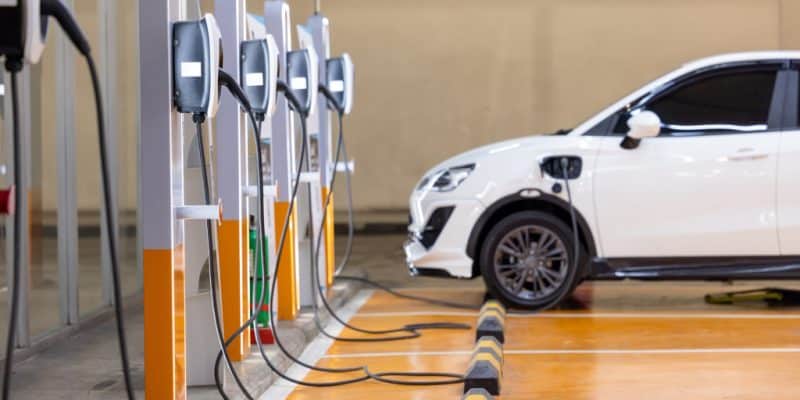Over the next few months, Taqa Volt, a subsidiary of the Egyptian energy group Taqa Arabia, will focus on developing and operating nine charging stations in the Cairo suburbs, where more and more electric vehicle drivers are settling.
In Egypt, the nearly 2 million inhabitants of New Cairo (an urban area built to relieve congestion in the capital Cairo) already have almost all the infrastructure in place to make their daily lives easier. But electromobility enthusiasts, especially those living in the Festival City, are still lacking.
This futuristic complex covering an area of 300,000 km2 and developed by Egyptian property developer Al-Futtaim Real Estate (AFRE) will soon be equipped with nine charging stations for electric vehicles. The project has been entrusted to Taqa Volt, whose mission will be to “develop, manage and operate” the nine new facilities. Taqa Volt is a subsidiary of the Taqa Arabia Group, one of the largest private providers of energy solutions in the Land of the Pharaohs.
“By integrating these state-of-the-art charging stations into this luxurious enclave, we are not only meeting the changing needs of our discerning customers, but also contributing to the broader environmental goal of a city within a city, environmentally friendly and self-sufficient. We therefore opt for complete smart city solutions encompassing the development of innovative ideas for green buildings and sustainable practices in the Cairo suburbs,” explains Ashraf Ezz El-Din, Afre’s Managing Director.
Read also- EGYPT: $319m from Jica for the fourth line of the Cairo metro
The nine recharging stations are also a good business move for Taqa Arabia, which is beginning to make its mark in the coveted natural gas market, including outside Egypt. In 2022, for example, Taqa delivered five vehicles powered by compressed natural gas (CNG) to the government of Equatorial Guinea, in a context where this fossil fuel (emitting less than 30-50% of CO2 emissions) is seen as an alternative to oil for decarbonizing the transport sector.
Benoit-Ivan Wansi






